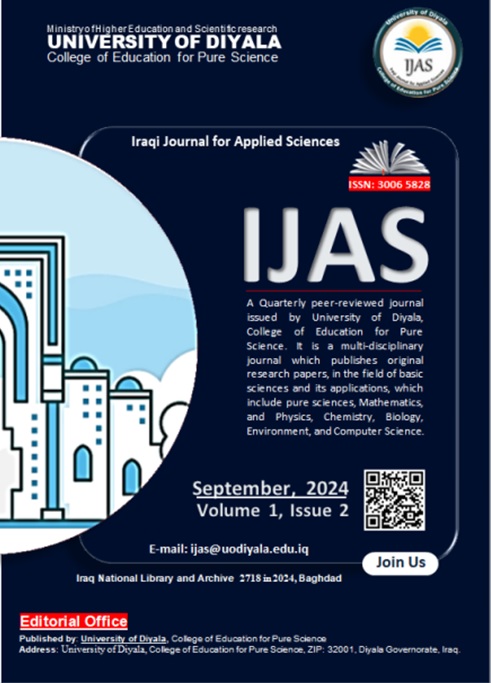A comparative study of the healing effects of sesame oil and TiO2 nanoparticles gel on second-degree burn
DOI:
https://doi.org/10.69923/wr76dn63Keywords:
nanoparticle, titanium dioxide, Sesamum indicum L., burn wound healing.Abstract
Burns, a severe form of soft tissue injury, can cause significant damage and, in extreme cases, be fatal. They also lead to considerable mental and emotional distress due to excessive scarring and skin contractures. Despite various treatment methods, burn care remains a challenging medical issue.
In this study, titanium dioxide (TiO2) nanoparticles were synthesized and characterized using field emission scanning electron microscopy (FE-SEM), revealing particle sizes ranging from 31.52 to 69.08 nanometers.
The impact of biosynthetic nanomaterials and sesame seed oil on burn healing in laboratory rats was investigated. The study compared the effects of a 1% TiO2 solution and 20% sesame oil on burned skin with a control group of rats having natural skin. Fifteen rats were divided into three groups, each receiving daily treatment for 28 days. The results indicated that the TiO2 treatment significantly accelerated healing compared to the sesame seed oil group, which had a slower healing rate of 0.12 points per day. The TiO2 treatment demonstrated a marked improvement in healing speed and effectiveness.
Downloads

Downloads
Published
Issue
Section
License
Copyright (c) 2024 Iraqi Journal for Applied Sciences

This work is licensed under a Creative Commons Attribution-NonCommercial-NoDerivatives 4.0 International License.
Licenses and Copyright
The following policy applies to the Iraqi Journal of Sciences (IJAS).
- IJAS applies Creative Commons Attribution (CC BY) license
- If you have written permission to do so, yes. If your manuscript contains content such as photos, images, figures, tables, audio files, videos, etc., that you or your co-authors do not own, we will require you to provide us with proof that the owner of that content (a) has given you written permission to use it, and (b) has approved of the CC BY license being applied to their content. We provide a form you can use to ask for and obtain permission from the owner. If you do not have owner permission, we will ask you to remove that content and/or replace it with other content that you own or have such permission to use. Don't assume that you can use any content you find on the Internet, or that the content is fair game just because it isn't clear who the owner is or what license applies. It's up to you to ascertain what rights you have” if any” to use that content.
- Many authors assume that if they previously published a paper through another publisher, they own the rights to that content and can freely use that content in their PLOS paper, but that is not necessarily the case; it depends on the license that covers the other paper. Some publishers allow free and unrestricted re-use of article content they own, such as under the CC BY license. Other publishers use licenses that allow re-use only if the same license is applied by the person or publisher re-using the content. If the paper was published under a CC BY license or another license that allows free and unrestricted use, you may use the content in your IJS paper provided that you give proper attribution, as explained above. If the content was published under a more restrictive license, you must ascertain what rights you have under that license. At a minimum, review the license to make sure you can use the content. Contact IJAS if you have any questions about the license. If the license does not permit you to use the content in a paper that will be covered by an unrestricted license, you must obtain written permission from the publisher to use the content in your IJSPlease do not include any content in your IJAS paper that you do not have rights to use, and always give proper attribution.
- If any relevant accompanying data is submitted to repositories with stated licensing policies, the policies should not be more restrictive than CC BY.
- IJAS reserves the right to remove any photos, captures, images, figures, tables, illustrations, audio and video files, and the like, from any paper, whether before or after publication, if we have reason to believe that the content was included in your paper without permission from the owner of the content.
References
Marshall,G.C.and H.W.Ohm 1987 .Yield responses of 16 winter wheat cultivars to row spacing and seeding rate .Agronomy Journal .79:1027-1030









